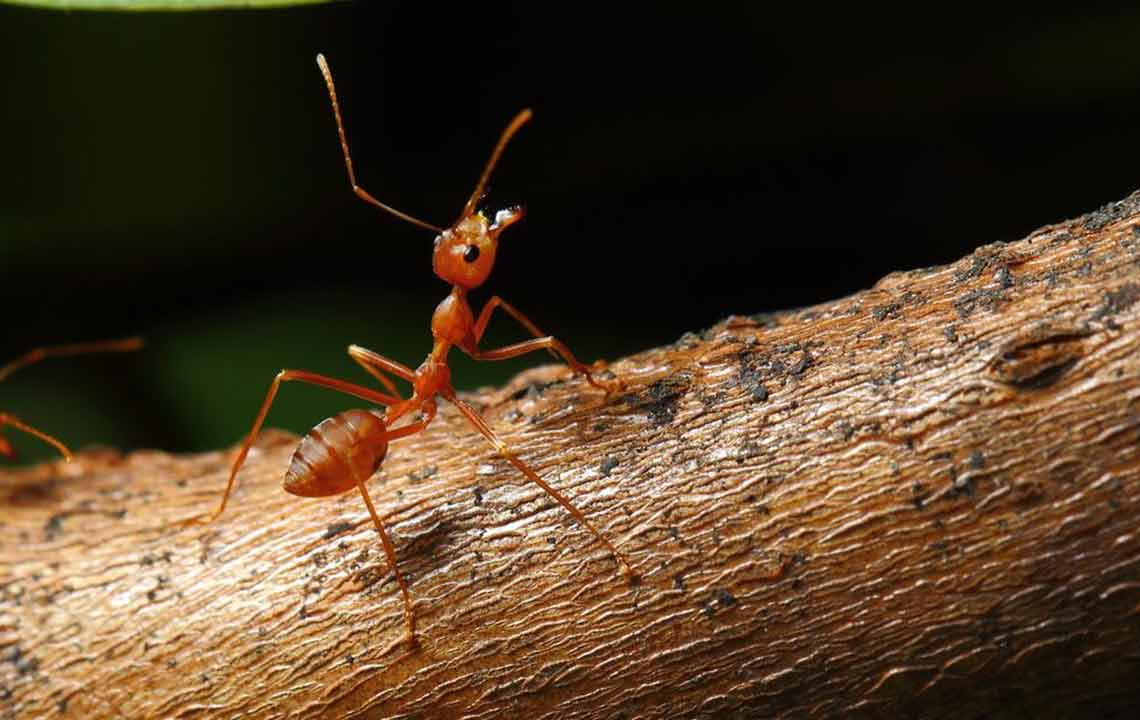What Are the Treatments for Fire Ant Sting?
Fire ant stings can be quite painful and sometimes become more severe than just a simple pain, especially for those who are allergic to the ant bites. You need immediate medical care if experiencing shortness of breath and tightness in the throat following a fire ant sting.
Points to remember in case of fire ant stings:
- You need to know if you are allergic to fire and stings and take emergency medical help if you are.
- Elevate the affected area.
- Wash the sting area with soapy water.
- Take an antihistamine or use a hydrocortisone cream.
- Don’t squeeze the blisters. If it breaks clean with soapy water and avoids infection.

How to deal with fire ants
Mostly you get stings from fire ants if you step on or sit on a fire ant mount. This disturbs hundreds and thousands of fire ants. To defend their home, they start stinging and if you start feeling the same, the first thing you should do is to get up and leave the area as quickly as possible.
Fire ants cling to the body with the help of their mandibles is very difficult to remove them. Quickly pick them off one at a time and drop on the ground. The ants do not leave your body even if you dry brushing them away.
You need to know if you are allergic to fire ant bites. Think and know about the symptoms. Having an allergy to fire ant stings is quite rare, but still, if you have it, you need immediate medical help. Pain and swelling are common side effects of the bites and are normal, but if you have the following symptoms, you need to go to the hospital emergency care as soon as possible.
- Itching and swelling hives in the areas where the ants have bitten.
- Nausea, vomiting, and diarrhea
- Difficulty breathing and tightness in the chest.
- Swelling of the throat, tongue, and lips.
- Difficulty in swallowing.
- Anaphylactic shock – This occurs in very severe cases and can lead to dizziness, blackout or cardiac arrest if not treated immediately.
If you are allergic you need to seek treatment for fire ants’ bites. These allergic reactions are generally treated with epinephrine, antihistamines, and steroids at the hospital to stabilize your symptoms.
If you are aware that you are allergic it is always handy to carry the above-mentioned medicines. Inject yourself and then proceed to the hospital.
Treatment for fire ants’ bites
- Elevate or lift the affected area to avoid the poison to spread in the body. While you are on the way to home or to get any treatment for fire ants’ bite, hold your hand in an elevated position which would help in minimizing swelling also.
- Bathe the sting area with soapy water gently and remove all the dirt and any other debris from the affected area. This helps in preventing infection.
- Used cool compress on the infected area. This will help to lessen the itching by bringing down swelling and numbing the stung area.
- It is advisable to take an antihistamine and use hydrocortisone cream. These medicines help to decrease the pain and the itching.
After a few hours of being stung the swelling subsides a little and blisters are formed. The blisters should not be popped or squeezed. It may cause aggravated infection. Avoid scratching these blisters as they can cause it to break. If the blisters break, clean the area with soapy water and keep in mind to monitor any signs of infection. If the area becomes discolored or pus starts leaking it may become infected. Consult a doctor immediately.
Treatment for fire ants’ bites – A few home remedies
With the feedback of many infected people, there are a few following home remedies which have been tried with success. Each remedy may not work the same for different people. It is up to you to decide which remedy to pick. To know the right treatment for fire ants’ bites, doctor’s advice, as always, is the best to seek for.
- When the ants have been removed from the body rinse the area with rubbing alcohol and leave it wet.
- Elevate the area and sprinkle a good amount of meat tenderizer. This will prevent the effects of the sting to increase beyond the moment of the treatment for fire ants’ bite.
- Keep a bottle of liquid hand sanitizer handy always.
- Apply the hand sanitizer in the affected area liberally after removing the ants from the skin.
- Let it stay for some time. This will help decrease the burn for some time and the usual symptoms may not arise for hours and allow you some time to reach for medical help.
- Take Benadryl or equivalent antihistamine immediately
- Rub the bite area gently with the paste made of water and baking soda. This helps in decreasing the itchiness and reduces redness also.
- A paste made from baking soda and vinegar may also help.
- Use an ice pack or cloth soaked in cold water directly on the bite area for intervals of 10 minutes taking a break between each treatment. Avoid a long period of ice contact to the skin as it may cause ice burns.
- You need to rinse the affected area with ammonia as soon as you got stung. Ammonia is known to help cleaning infections quickly resulting in minimized effects of the stings.
Fire ant bites may be very painful. Your presence of mind in such a situation may help you come out of it easily.

